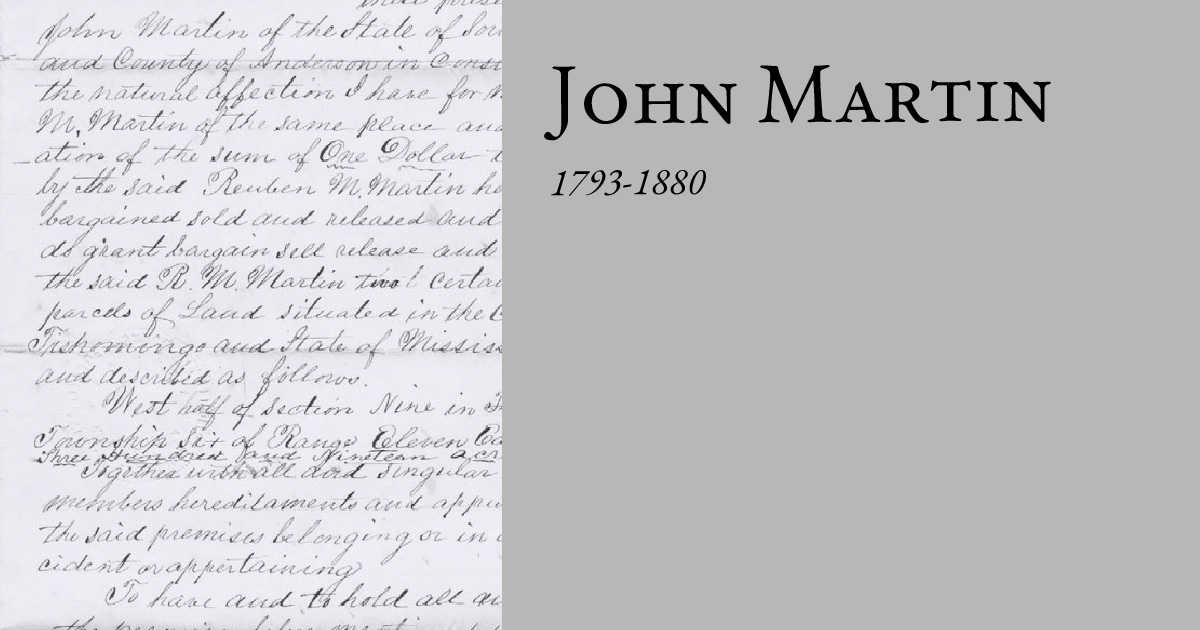Visit
 The Official Web Site of the State of South Carolina
The Official Web Site of the State of South Carolina

Born about a half mile from Ebenezer Methodist Church on September 1, 1793, John Martin was the only child of pioneer parents. His father, Roderick, and his mother, the widowed Mrs. Taylor, had been some of the first settlers of the Varennes section. John would become known for his military career and civic leadership. At the age of nineteen, he volunteered in Captain Thompson’s company, made up of men from Pendleton and Abbeville, with whom he served through the War of 1812. In fact, John may have been the last surviving member of the company at the time of his death in 1880.
Martin’s early military experience set the tone for the rest of his life. He became a Captain of the Bear Creek Company and later served as Colonel of the 4th Regiment of South Carolina Militia. He also provided leadership during the Antebellum era, having taken the office of Ordinary in Anderson County (similar to the modern-day Magistrate) in 1836. The Ordinary performed tasks such as licensing marriages and adjusting claims against an authority. This led to his election as Sherriff in 1847. During the 18th and 19th centuries, it was common for militia men and military leaders to serve in law enforcement capacities when home from war. Martin did so exceptionally and provided a more organized system for prosecution of crimes and protection of citizens.
John Martin had also built a reputation as a law maker since becoming a representative in the State Legislature in 1832. In the years leading up to the Civil War, Martin emerged as a proponent of Secession. In 1860, he was a delegate from Anderson County to the State Convention which drafted and signed the Ordinance of Secession. He also volunteered for service in the war itself, having traveled to Columbia at the age of 67 with his rifle which he called “Old Friday.” However, Martin was convinced to return home, leave the fighting to younger men, and serve the war effort in other ways.
John Martin lived out the rest of his days in the same place he had been born. Martin Township was named after the Colonel, a testament to his popularity among his friends and neighbors. He and his wife, Cinthia Rutledge, had a total of sixteen children, though five of them died early deaths. John passed away on December 28, 1880 and was buried at Ebenezer Methodist Cemetery. His leadership brought Anderson County and South Carolina through many of their most formative years and saw to the building of a more united nation after our most divisive conflict.